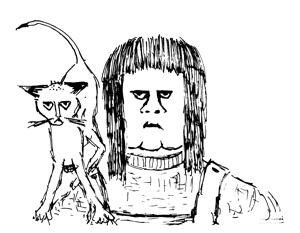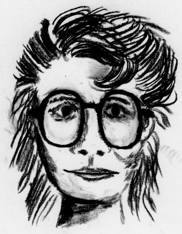


The obscene gloating of the right-wing press over the irrevocable slide into chaos and decay of the stalinist so-called People’s Republics of the communist world consitutes a masterpiece of myopic self-delusion. When a dinosaur died of a terminal disease, did the other dinosaurs congratulate themselves as being superior, neither noticing nor understanding their common symptoms of excessive size, cold-bloodedness, lavish consumption and single-minded greed, or did they see the rodents scurrying underfoot, and wonder where the future lay?
For South Bandicoot is as those rodents, a tiny, unnoticed creature holding aloft a banner of hope for those oppressed by dictatorship, democracy, theocracy, and socialism alike.
The People’s Republic of South Bandicoot occupies an area of 50 km by 20 km in the heart of the Great Dividing Range in Eastern Australia.
Devastated by drought and then flood, and smarting under the combined neglect and oppression of Federal, State and Local governments of all political hues, the entire population took advantage of the contradiction inherent in the only access road being cut by rain to rise as one and declare their independence from the oppressor.
This book tells the story of South Bandicoot, from the beginnings to that momentous revolution and its aftermath.
Sandra Clark
Chairperson,
Management Collective of the People’s Republic of
South Bandicoot

Maeve Clark is an Abstractor of Abstruse Information at the People's Library of South Bandicoot. She is a descendant of the first white settlers of South Bandicoot.
Her main interest in life is breeding silverfish.
I have included three sample chapters in HTML format:
Chapter 2 is about the early settlement of South
Bandicoot, in which the first white man arrives to find the first white woman
already there;
Chapter 5 is about the defeat of the Japanese invasion
of Australia by a platoon of New Zealand engineers;
Chapter 10 is about the Declaration of Independence.
The book is available as a PDF file (138pages, A4, 3.43Mb). To download it, click here.
Copyright © D.W. Walker, 2004